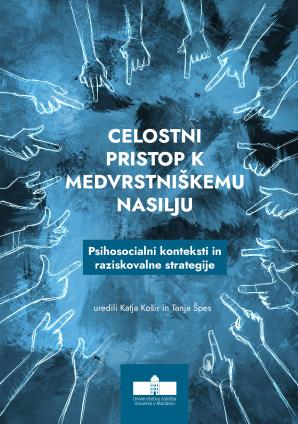Kvalitativno raziskovanje medvrstniškega nasilja: izhodišča in utemeljitev
Synopsis
Peer violence is a serious and complex social problem that requires in-depth research from various perspectives. Most of the existing empirical research on peer violence is quantitative in nature. It mainly concerns the prevalence of this phenomenon, risk and protective factors, and the negative consequences that peer violence has for its participants. In contrast, there is little qualitative research in this area. The purpose of this chapter is to present the theoretical foundations of qualitative research methods and to justify their use in studying peer violence. Qualitative research enables a more detailed description and interpretation of peer violence, as it offers a deeper understanding of the experiences and views of individuals who are involved in it, i.e. children, adolescents, parents, teachers, and other adults. In this chapter, we describe in more detail the two most common qualitative research methods, namely interviews and focus groups, and apply them to the field of research on peer violence. In addition to the contributions that qualitative methods bring, the chapter also draws attention to their limitations.







